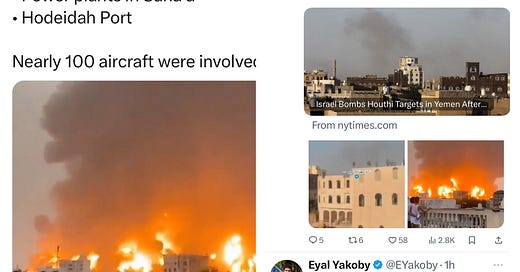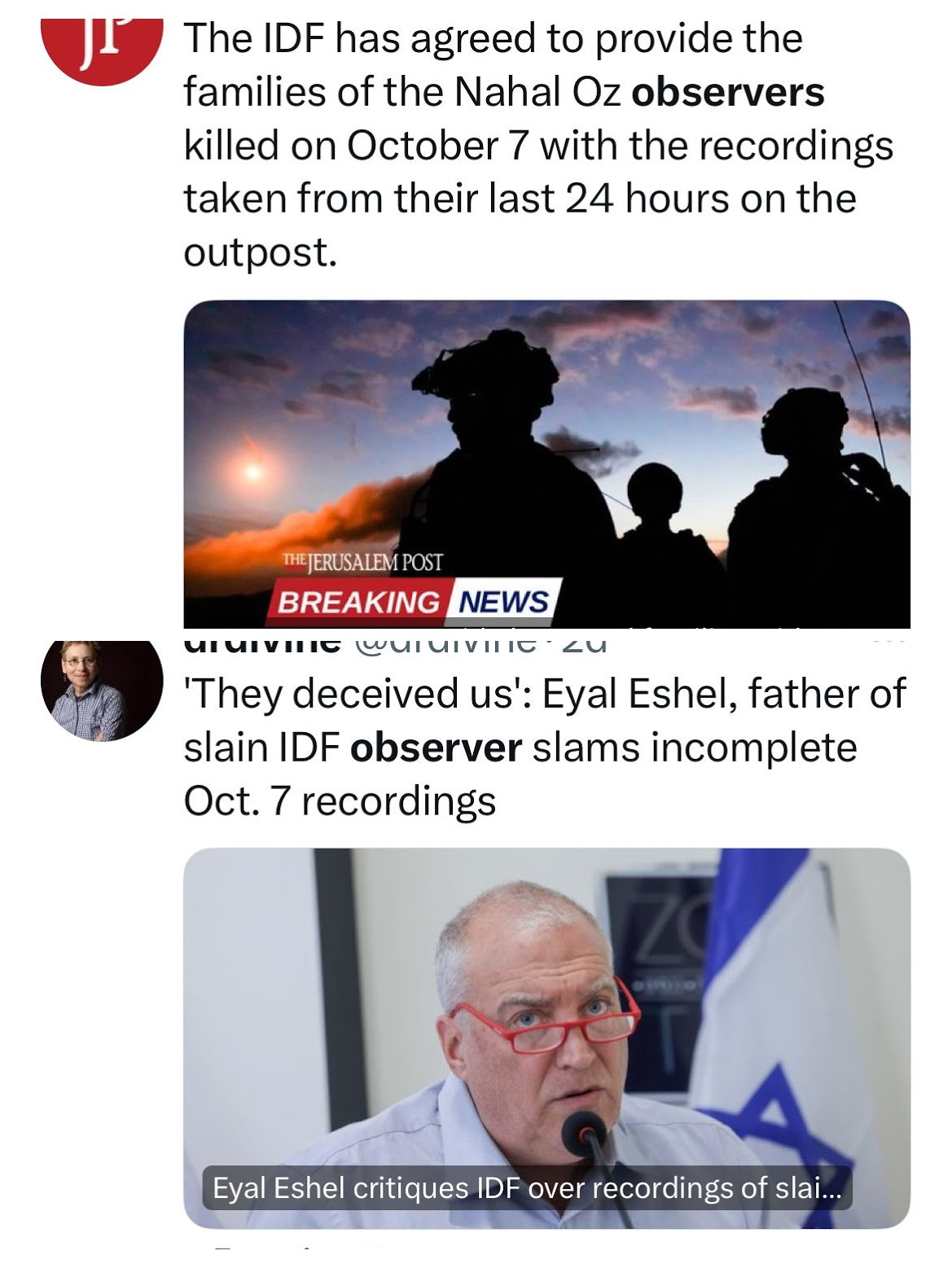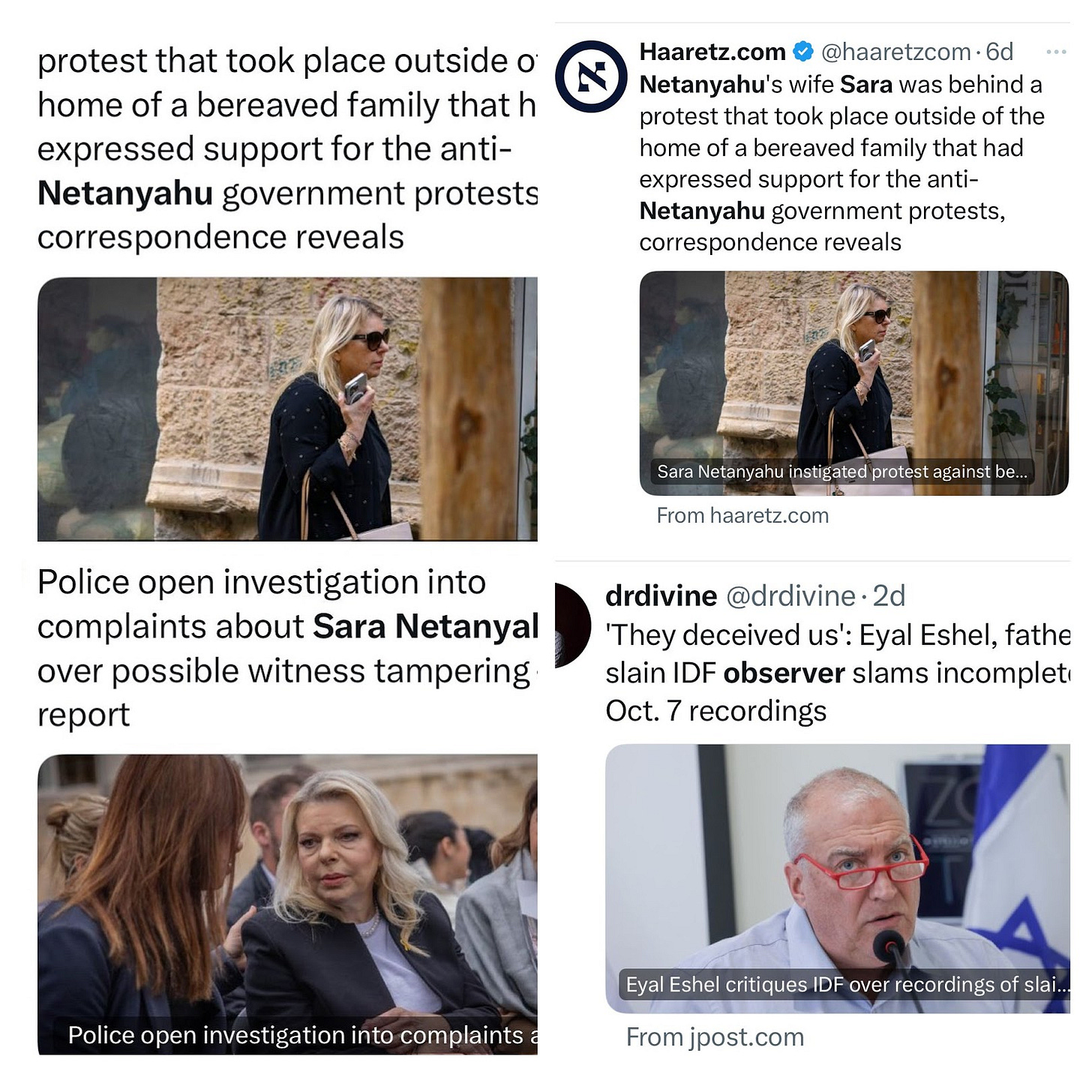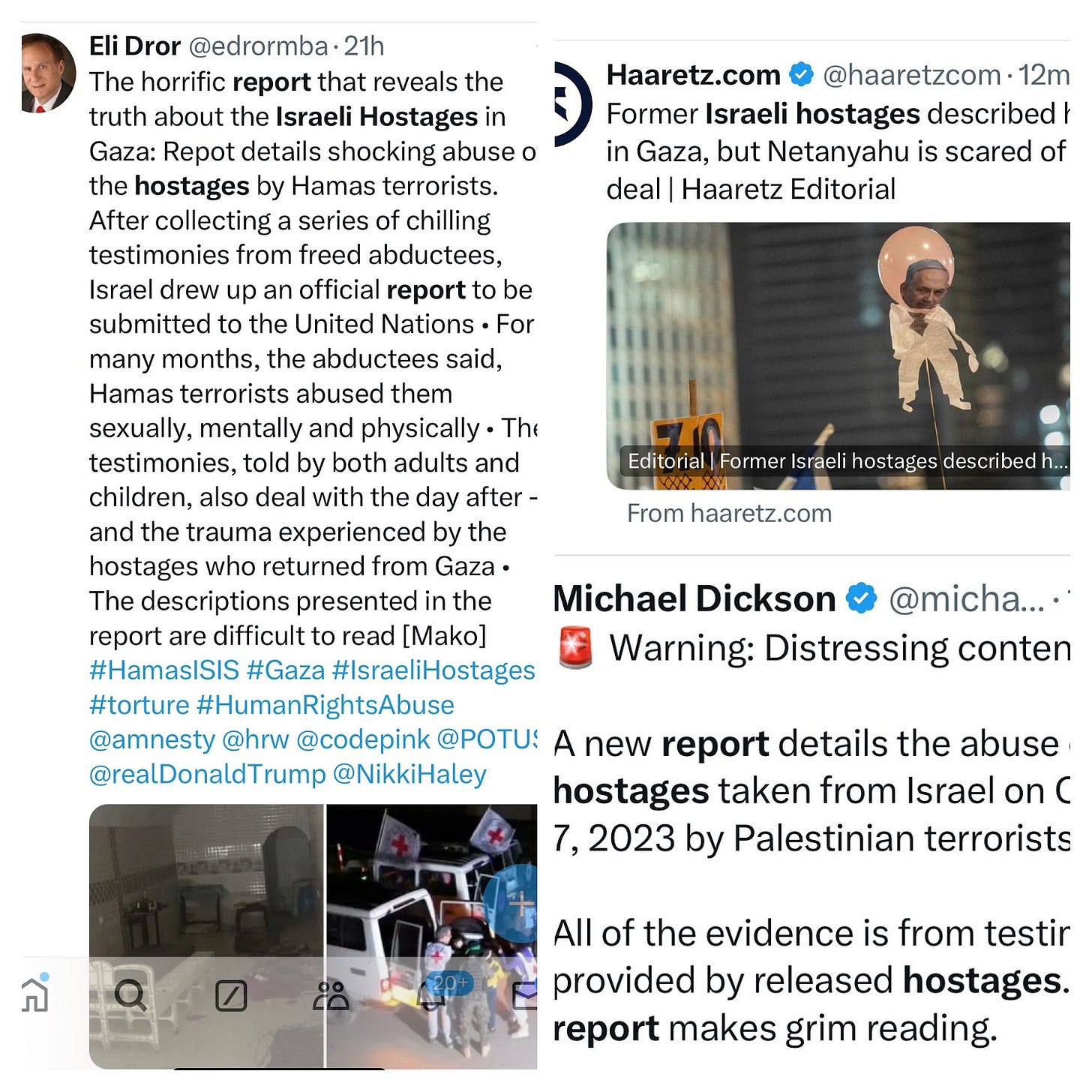Israel at War - Day 448
1. Houthi’s Fire Missiles, Israel Strikes Back
Israel launched airstrikes against targets in Yemen, 2,200 km (1,400 miles) from Israel, after the Houthis launched ballistic missiles towards Israel. The Israeli Air Force targeted the international airport in San’a and several maritime ports in Yemen. The attack took place when the leader of the Houthis addressed his supporters.
The rebel organization in Yemen, the Houthis, promised to keep launching ballistic missiles toward Israel until the war in Gaza ends. The Islamic organization, considered to be an Iranian proxy, joined together with other Islamic organizations against Israel, Hamas in Gaza, and Hizbollah in Lebanon. The Houthis are based in Yemen, thousands of miles from Israel. They joined the attacks a few months ago, attacked commercial shipping in the Arabian Ocean, and became a real threat to all international maritime traffic in the area. The US, together with an international alliance, unsuccessfully tried to address this threat. Last week, the Houthis launched ballistic missiles four times, toward the Tel Aviv area, late at night sending tens of thousands of people from their beds to safe areas. Israel has not managed to collect enough intelligence on the whereabouts of the organization's leaders in Yemen, or the locations of the missile launchers, and therefore Israel doesn’t have a “bank of targets” to attack. Until this information is collected, Israel cannot send the air force to attack and neutralize the threat.
There is a debate within the Israeli security and intelligence agencies as to what would be the right response. The debate is mainly focused on striking Iran as the main source of evil and the main player initiating the military campaign against Israel, or investing in identifying the main sources in Yemen and neutralizing them.
Some Israeli buildings were hit by Houthi ballistic missiles, including a school, a park for children, and some houses. Fortunately there were no injuries. Israel’s Iron Dome and other missile defense systems were able to intercept some of the missiles, but at least one managed to avoid defensive systems.
2. IDF Provides Families of Female Spotters with Radio Recordings of October 7th
The IDF has recently provided the families of female spotters, who were killed or kidnapped during the Hamas attack on October 7th, with recordings of their last radio communications. This action comes more than fourteen months after the October 7, 2023 assault on civilian communities and IDF bases in southern Israel.
However, some families have raised concerns that the recordings are incomplete, as they reportedly ended before the onset of the Hamas invasion. In response, Defense Minister Israel Katz has instructed the IDF to ensure that the families receive the full recordings. Eyal Eshel, the father of IDF spotter Roni Eshel, who lost his life on October 7th, criticized the partial recordings, suggesting they are part of a long-standing cover-up. He has called for a state commission of inquiry to reveal the truth. Israeli President Isaac Herzog has echoed this sentiment, emphasizing the urgent need for such an inquiry as mandated by law.
3. Ms. Sara Netanyahu at the Center of Investigative Documentary, as Part of The Poison Machine
A documentary film that was broadcast as part of an investigative journalism TV program proved that Ms. Netanyahu, the wife of PM Netanyahu, was the initiator and main player behind an intensive smear campaign directed at her husband's political rivals, and against the leaders of the popular protests against the policies of PM Netanyahu’s cabinet. The reporter obtained the content from the phone of a woman who for many years was one of PM Netanyahu’s main political advisers, and one of the closest and most reliable persons around him. She was also close to MS. Netanyahu. The woman died of cancer more than a year ago. Her phone contained messages from Ms. Netanyahu in which she encouraged protests against her husband's rivals, ugly inciting protests using smear language. For example, she encouraged key players who strongly support PM Netanyahu to protest against a bereaved family, whose son was a military pilot and died during a war less than ten years ago. The protest was very ugly, and they wished the family to suffer more and to lose more children. Their only “sin” was that they lived in Caesarea near the private residence of the Netanyahus and that they allowed the demonstrators against PM Netanyahu to use their yard. Another example was that she initiated protests against a political rival where they indicated that he engaged in sexual harassment, which was never proven. She also initiated protests against one of the key witnesses at PM Netanyahu’s corruption trial, Hadas Klein, trying to terrorize and intimidate her. The film also found a strong connection between the police chief and the Netanyahus’, which may look unethical. Ms. Klein filed a complaint with the police against Ms. Netanyahu. It is important to mention here that Sara Netanyahu is currently staying in Miami Fl. for a long visit with her oldest son who lives there. In return, Ms. Netanyahu filed a defamation complaint against media outlets.
Late Thursday night the state attorney general decided together with the state prosecutor to open an investigation against Sara Netanyahu for obstruction of justice. A few hours earlier, PM Netanyahu issued a four-minute video in which he incited against media outlets in Israel, calling them “poisonous channels” while he praised his wife for her kindness.
4. Israel and Hamas Exchange Accusations Over Failure to Finalize Ceasefire/Hostage Deal
As negotiations were suspended earlier this week, both sides blamed each other for the lack of progress, despite earlier indications of positive developments.
Hamas officials claimed that "the occupation has imposed new conditions concerning withdrawal, ceasefire, prisoners, and the return of the displaced, which has hindered the agreement that was previously attainable." In response, Israeli Prime Minister Netanyahu accused Hamas of dishonesty and of "reneging on understandings that have already been reached."
Earlier this week, the media reported that the Ministry of Health has released a final draft of a report intended for presentation to the UN. This report attests to the abuse suffered by Israeli hostages at the hands of their captors in Gaza. Drawing on testimonies from hostages released in the initial deal and those rescued during a military operation, the report details the physical and psychological suffering endured by the hostages, including instances of physical and sexual violence, starvation, and humiliation, along with the broader implications of these experiences.
Families of Israeli hostages have taken to the streets, demanding the immediate release of all hostages and highlighting the imminent danger to their lives posed by any delays or indecision.
Political and religious leaders remain divided on the urgency of achieving a ceasefire and hostage deal. Israel's chief Sephardi rabbi, David Yosef, stated earlier this week that "it is permissible and necessary to release terrorists, even those with blood on their hands," in exchange for the release of Israeli hostages held in Gaza. Conversely, far-right Heritage Minister Amichai Eliyahu emphasized that addressing the firing of Attorney General Baharav-Miara is more critical than issues like the hostage deal or the Iranian threat, asserting, “Those who care about the hostages must understand that now more than ever, an unequivocal clarification is needed on the issue of the powers of the attorney general, military prosecutors, and state prosecutors,” as reported by the outlet.
5. A Somber Christmas in Bethlehem and Gaza
Palestinian Christian communities in the West Bank and Gaza marked a second somber Christmas considering the ongoing war in Gaza.
Bethlehem, which used to draw tens of thousands of people during the holiday season, lacked the traditional festive cheer and colorful decorations. Palestinian scouts marched quietly, while security forces set up barriers near the Church of the Nativity. The Latin Patriarch expressed hope for a better Christmas next year, reflecting on the shuttered shops and empty streets.
The ongoing war in Gaza has severely impacted Bethlehem's economy, which relies heavily on tourism. Local business owners lament the lack of pilgrims and tourists, with some reporting months without sales, highlighting the dire situation faced by the community during what is traditionally a joyful time of year.
Latin Patriarch Pierbattista Pizzaballa, commented on the closed shops and deserted streets, expressing hope for a brighter future next year. Pizzaballa also conducted a special pre-Christmas Mass at the Church of the Holy Family in Gaza City. Several Palestinian Christians told media outlets that they have been seeking refuge in the church since the onset of the war in October of the previous year, struggling with limited access to food and water.









